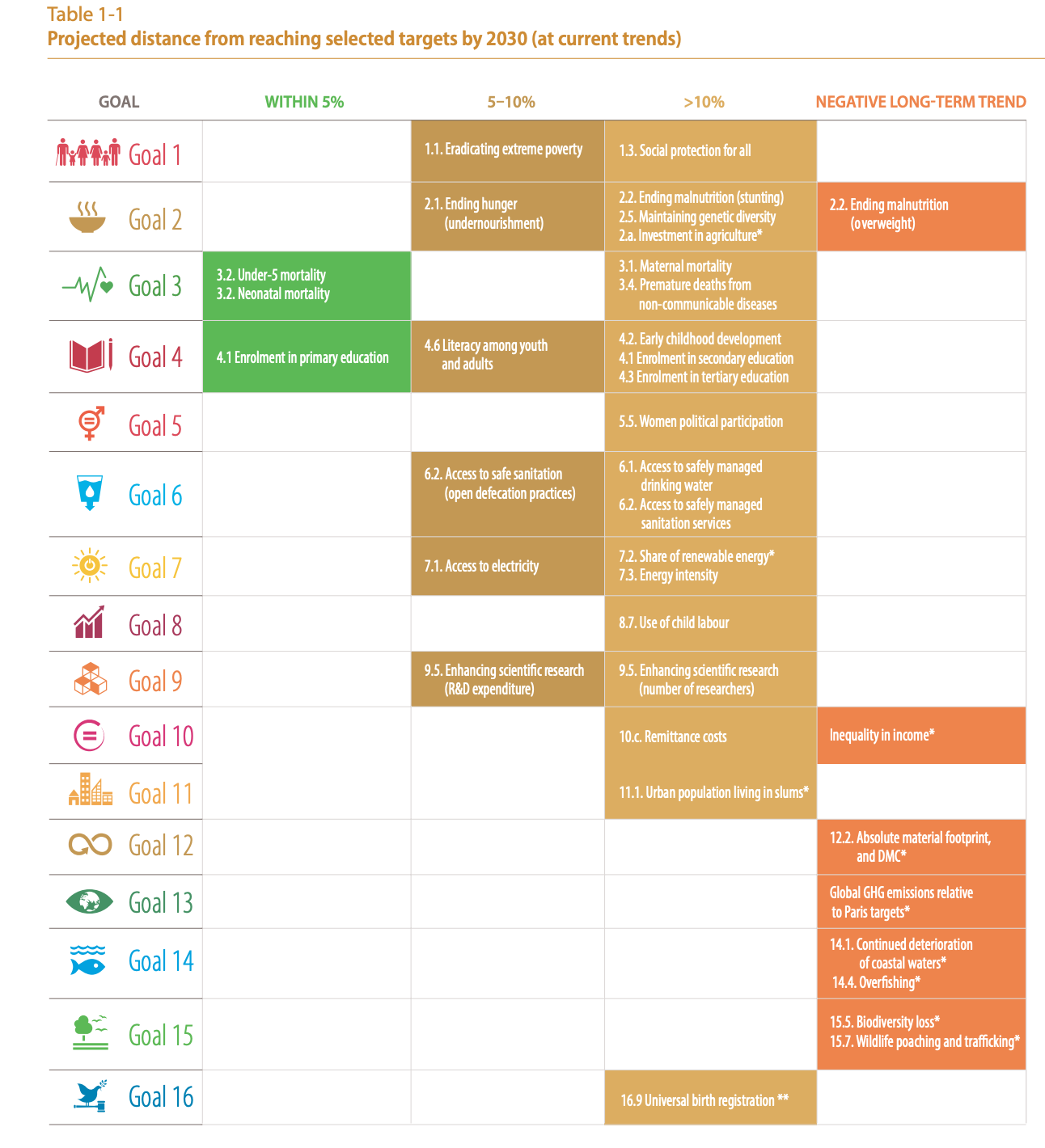 Share this!
Share this!On Monday 23rd February representatives from AER attended a Webinar on the 2019 Global Sustainable Development Report.
The webinar was organised by the UN DESA (Department of Economic and Social Affairs), presented by Astra Bonini and Stephanie Rambler and focused in particular on which transformation is needed to attain the sustainable development goals.
As we currently are lagging far behind in progress on the Global Sustainable Development Goals, it is important to highlight the need for all cities and regions to play an active part in achieving these goals.
Overview
The 2019 report was a product of a group of scientists with a diverse background, nominated by UN member states and appointed by the Secretary-General. It aims to be a tool to help develop policies for advancing towards the SDG goals.
The report concludes that it is time to sound the alarm bell. Looking at the table above (1-1 in the report), it is clear that most goals will be impossible to reach by 2030 if we continue along the current trend, with key systemic challenges facing both biodiversity loss, climate change and income inequality.
Another major issue mentioned in the report is that no country has managed to achieve social thresholds without significant environmental impact, shown in Figure 1-9. This clearly shows what was a major point highlighted in the webinar, namely the interconnection between different sustainable development goals, where progress along one goal can have adverse or positive effects on another goal. An example of it would be:
In order to achieve Goal 2, Zero Hunger, more land would need to be allocated to agriculture and food production. This would negatively affect Goal 15, Life on Land, but at the same time have a positive effect on Goal 1, No Poverty, and Goal 3, Good Health and Well-being.
Entry-points and levers
Recognizing this tradeoff effect between goals is especially important as policies are implemented to address sustainable development goals. The report highlights 6 entry-points where action can have a positive effect on several points:
- Human wellbeing and capabilities
- Sustainable and just economies
- Energy decarbonisation with access
- Food systems and nutrition patterns.
- Urban and peri-urban development
- Global environmental commons
Further on, a set of four levers are identified which can be used to bring about the necessary transformations set forth by the entry-points, namely governance, economy and finance, individual and collective action, and at last science and technology. One action can enact upon several levers at once, and the report highlights that there needs to be cooperation between government, the private sector and academia in the development of policies.
Harnessing science for knowledge-based transformation
At last, the webinar highlighted some surprising aspects, and especially how scientists from poorer countries opened the eyes of scientists from richer countries. Institutions in poorer countries do not always have access to paid journals, and as such, it is important for science related to the SDGs to be open-access.
The scientists also highlighted that the agenda needs to be enacted at a local level, and therefore the science also needs to work on the local level. This makes it crucial for research to also be conducted locally, not only internationally. The research should still be made available internationally in order to enhance knowledge-sharing and experience exchange.
The presentation from the webinar can be found here.

